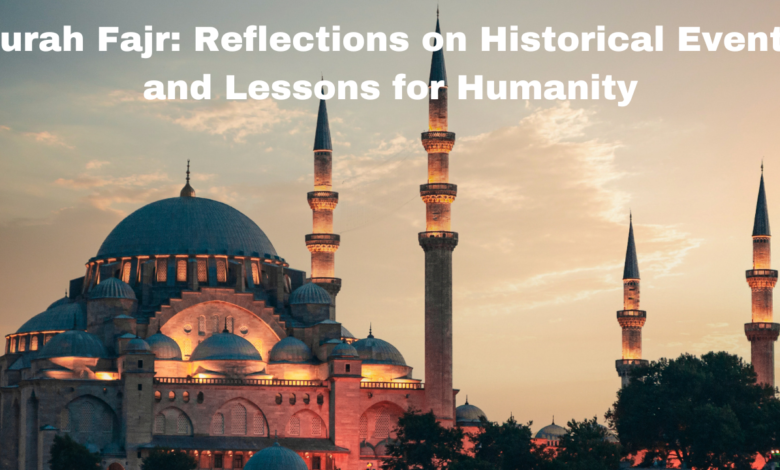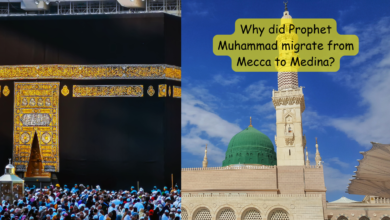Surah Fajr: Reflections on Historical Events and Lessons for Humanity

Introduction:
Surah Fajr is the 89th chapter of the Holy Quran, consisting of 30 verses. It holds a significant place in Islamic literature, not only for its eloquent language and profound meanings but also for the profound reflections it offers on historical events. This article delves into Surah Fajr and explores some historical events that resonate with its verses, drawing essential lessons for humanity.
The Destruction of ‘Ad:
Surah Fajr begins with an oath by the dawn (Fajr) and the ten nights, referring to the last ten nights of the month of Dhul-Hijjah, which include the important pilgrimage (Hajj) season. This oath signifies the importance of specific moments and events in history. One such historical event referenced in Surah Fajr is the destruction of the ‘Ad people. The ‘Ad were a powerful and prosperous civilization, but they became arrogant and turned away from the path of righteousness.
“And ‘Ad – they were arrogant during the time of their prosperity upon the earth without right, and they said, ‘Who is greater than us in strength?'” (Quran 89:6-7)
Their pride and defiance against God’s guidance led to their ultimate destruction as a punishment for their transgressions. This serves as a stark reminder to humankind about the consequences of arrogance, materialism, and negligence towards spirituality.
The Punishment of Thamud:
The Surah further draws our attention to the fate of the Thamud people, another ancient civilization that thrived in the Arabian Peninsula. They were known for their exceptional architectural skills but also for their wickedness and denial of prophetic messages. The Prophet Salih was sent to guide them, but they rejected his teachings and demanded a miracle to prove his prophethood. Consequently, they were granted a she-camel as a miraculous sign, but they chose to slaughter it, thus sealing their doom.
“Then as for Thamud, they were destroyed by the overpowering [blast].” (Quran 89:14)
The destruction of Thamud illustrates the importance of heeding divine guidance and the dire consequences of mocking divine signs and messengers.
The Arrogance of Pharaoh:
Surah Fajr also alludes to the arrogant and oppressive nature of Pharaoh, the ancient Egyptian ruler during the time of Prophet Moses. Pharaoh saw himself as a god and refused to accept the message of monotheism brought by Prophet Moses.
“And as for Pharaoh, who pierced the cords (to let the water gush forth from the springs of the earth), then, he shall be of those who are destroyed.” (Quran 89:11-12)
Pharaoh’s tyranny and denial of truth led to his tragic downfall, teaching us the lesson that power and authority should never blind us from recognizing the ultimate authority of the divine.
Reflections on Contemporary History:
As we reflect on the historical events mentioned in Surah Fajr, it becomes evident that the Quran’s teachings are timeless and universally applicable. The lessons drawn from these historical events are not confined to ancient civilizations; they hold true for contemporary societies as well.
In our modern world, we witness nations rising to power and prominence, only to fall due to their arrogance, moral decay, and negligence towards their spiritual well-being. We see individuals consumed by materialistic pursuits, dismissing the messages of compassion, justice, and unity.
Conclusion:
Surah Fajr serves as a reminder of the rise and fall of civilizations throughout history and the profound lessons they hold for humanity. The Quran’s insights into past events offer timeless guidance, encouraging us to learn from the mistakes of our predecessors and to strive for humility, compassion, and spiritual enlightenment.
As we contemplate the historical events mentioned in Surah Fajr, let us internalize these lessons and apply them in our lives. By doing so, we can aspire to create a more just, compassionate, and harmonious world for ourselves and future generations.






